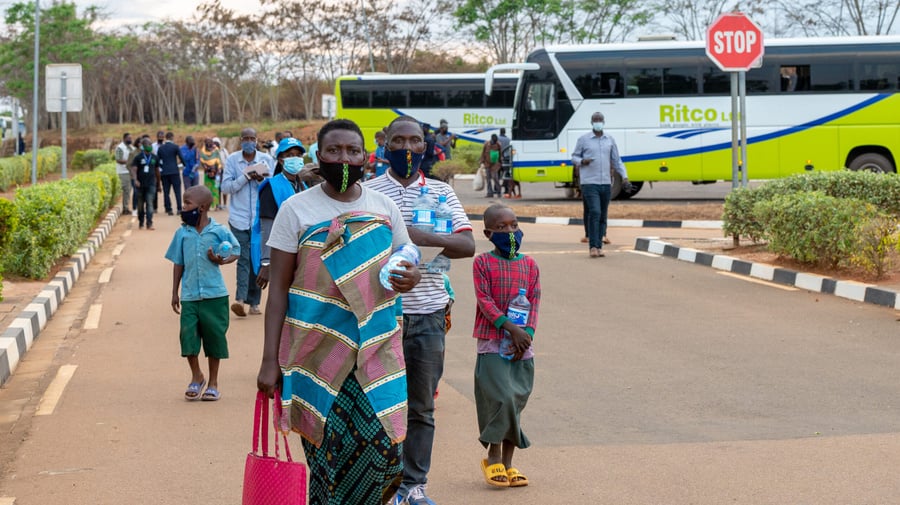Durable Solutions
Durable Solutions

Burundian refugees return home
Resettlement
UNHCR considers for resettlement to third countries r those refugees with protection needs who meet the criteria established by UNHCR and Resettlement countries. Since 2012, resettlement has been entrenched within the operation as a core activity targeting Congolese refugees who arrived in Rwanda prior to 2005. In addition, UNHCR prioritizes resettlement people with specific needs.
In 2022, almost 6,000 places are available for refugee resettlement from Rwanda to ten resettlement countries.
Voluntary repatriation
UNHCR supports the return of refugees only if and when conditions for return can be guaranteed to be voluntary, safe and dignified. Prospects for returning home for around 74,000 Congolese refugees, many of whom have lived in Rwanda since the mid-1990s, continue to be very limited due to on-going insecurity and conflict and have been supported by a UNHCR recommendation of non-return for all refugees from Eastern DRC.
While over 30,000 Burundian refugees have returned home since August 2020, current returns to Burundi are occurring at a slower pace due to ongoing political tensions and reintegration concerns. UNHCR in collaboration with Rwanda and Burundi governments will continue to support the organised voluntary return of Burundian refugees in Rwanda, and spontaneous returnees from neighbouring countries, in safety and dignity under the current Tripartite agreement activated in 2020. For Burundians, resettlement, and complementary pathways (CPW) continue to be explored for limited cases with protection and medical needs.
Local integration
Another alternative for those who are unable to return home is integration within the host community through acquiring Rwandan citizenship. Based on the Nationality Law in Rwanda, the legal and policy framework for local integration remains a solution available to refugee populations. Despite this, very few refugees have decided to engage with this solution to various legal and socio-economic barriers and expectations for resettlement. Where possibilities for local integration do present themselves, however, UNHCR is available to support refugee populations on the path to gaining Rwandan citizenship.
In addition, UNHCR’s work in Rwanda also focuses primarily on advocating for refugee inclusion within Rwandan society. Rights to work, own land, move about the country, access justice and compete for economic opportunities allow refugees to participate in the economy as wage earners and business owners reducing the dependence of refugee communities on humanitarian assistance. UNHCR cooperates closely with the Government in realizing these aims through the Livelihoods and Socio-Economic Integration Strategy (2021 – 2024) is focused on turning refugee camps into viable socio-economic centres.

